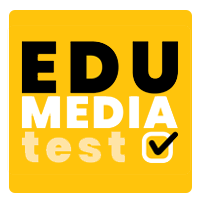Schools have a new interactive tool to assess the media literacy skills of European pupils aged 14 to 18. The EduMediaTest evaluates pupils’ abilities in 7 areas related to media education, as well as providing teaching materials to work on any shortcomings detected.
The resource is available in 10 different languages including English and as Gaeilge.
Regarding pupil assessment, a questionnaire has been produced comprising 43 questions that are used to measure students’ ability to determine the reliability of news, to detect the hidden agendas of sources, identify the existence of stereotypes and encourage a responsible attitude to copyright. Another aim is to gauge pupils’ ability to create digital messages that are understandable and responsible in terms of their online identity.
To complete the questionnaire, pupils have to analyse videos and photographs, as well as searching online for information. The joint result of the class is sent by the system to the teacher concerned, identifying correct answers and any shortcomings in the following six areas: Language, Technology, Production and dissemination, Ideology, Reception and Aesthetics. Based on the results obtained, the programme proposes activities for media literacy education in the aforementioned six areas, which teachers can apply in the classroom.
The Catalan Audiovisual Council (CAC) and Universitat Pompeu Fabra (UPF) have been responsible for developing this new tool, together with four media authorities in Europe (Croatia, Slovakia, France and Portugal) and two educational bodies (the National Centre of Audiovisual Media & Communication (EKOME) in Greece and Webwise (Dublin West Education Centre) in Ireland.
The project has been financed by the European Commission’s Media Literacy for All programme, whose aims include combating disinformation and promoting a critical approach to content received via social media.
